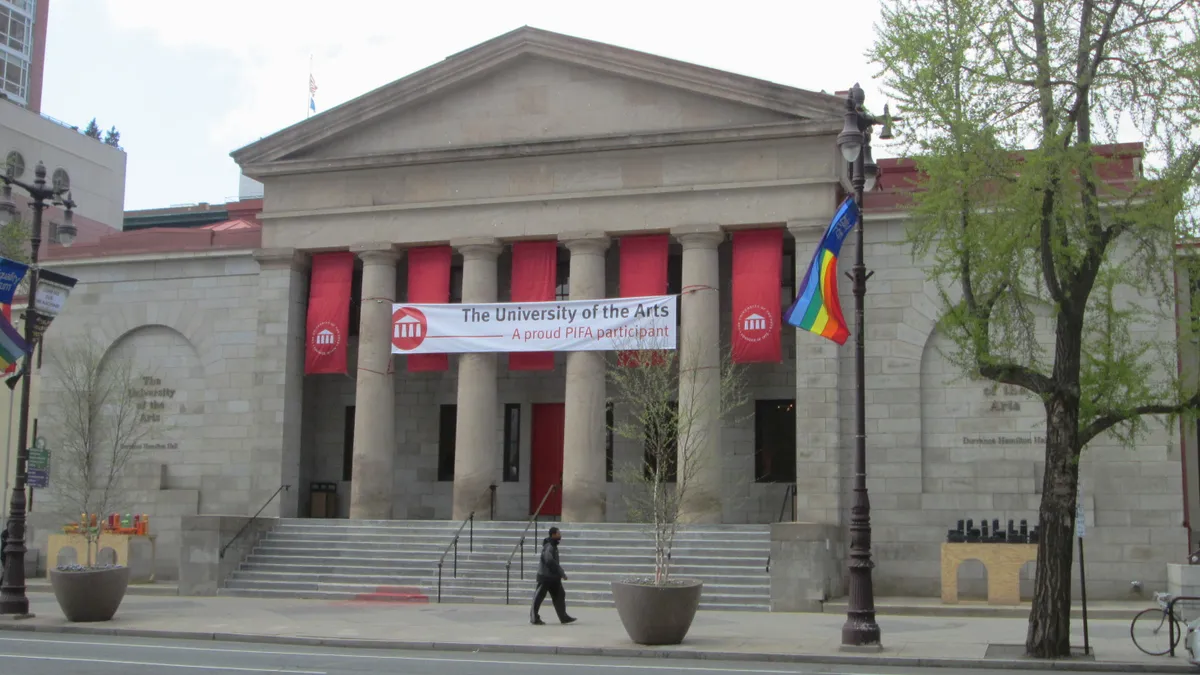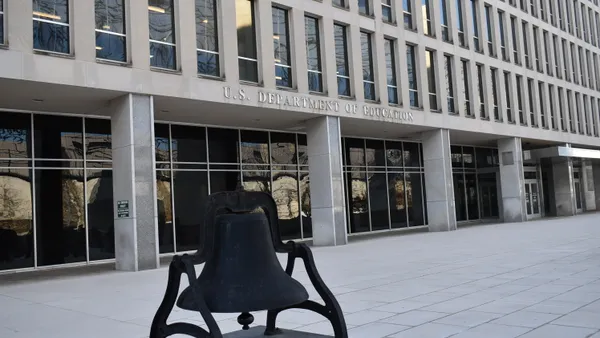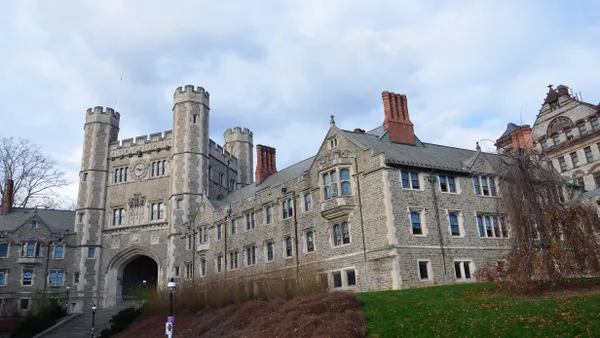Dive Brief:
- University of the Arts employees filed new charges of unfair labor practices against the institution Monday over treatment during its speedy path toward closure. The university did not immediately respond to a request for comment.
- United Academics of Philadelphia, which represents unionized faculty and staff at UArts, said in filings with the National Labor Relations Board that the university failed to bargain about pay, benefits and other issues for workers kept on to help the institution wind down.
- Another charge alleges that the university hasn’t provided information necessary for negotiations. The union also updated a previous charge filed with the NLRB in June that accused the institution of failing to “bargain on severance and benefits for workers terminated following UArts’ sudden closure.”
Dive Insight:
UArts’ abrupt closure surprised nearly all stakeholders, prompting protests, a class-action lawsuit, the resignation of its president, a fact-checking statement by its accreditor, an investigation by state and local officials, and now multiple NLRB charges by unionized employees.
It's still largely a mystery why the nearly 150-year-old university closed. Officials, including then-president Kerry Walk, cited “significant, unanticipated expenses” and a cash shortfall that they said “came to light very suddenly.” Specific details, however, have yet to emerge.
UArts’ announcement that it planned to close came just a week before it shut its doors on June 7, leaving students, faculty and staff in the lurch.
Mass layoffs followed the closure, according to UAP. The union charged that the university failed to provide information necessary for the union to engage in negotiations on the university’s layoffs and closure.
“The University of the Arts has behaved disgracefully throughout this painful and prolonged process,” UAP President Daniel Pieczkolon said in a statement Monday. “UAP Members have been left without clear answers as to when their benefits will run out and when or if they will be paid for work already completed.”
According to the union, UArts lawyers met with union members and UAP negotiators “briefly” after the university’s closure to discuss severance and benefits for laid-off workers, with no offers coming out of the talks.
In response, UAP updated its initial charge to accuse UArts of surface bargaining, a legal term for bad-faith negotiating where employers appear to engage without intending to make a deal. The union alleged that the university “has not meaningfully negotiated severance or benefits since the University closed on June 7, and that it has ignored existing Faculty Union contract provisions for financial emergencies or exigencies.”
UArts stands as a particularly vivid case of the chaos sudden closures can cause, for faculty as well as students.
Among other recent examples, Goddard College, in Vermont, blindsided faculty with a closure announcement, which left them scrambling to help students, wind down their programs and secure their own employment futures.
At Wells College, in New York, an announced closure occurred before shocked faculty could apply for jobs elsewhere, according to The Hechinger Report.














